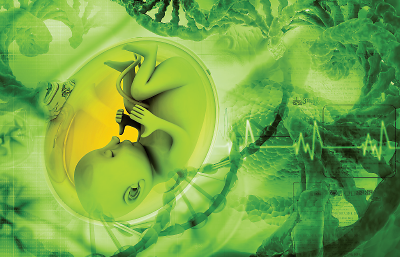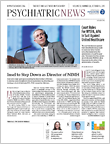Treatment of maternal psychiatric disorders with SSRIs during pregnancy was related to a lower risk of preterm birth and cesarean section but a higher risk of neonatal complications, according to an analysis of results from a large national birth cohort appearing in AJP in Advance (August 4).
Finnish, American, and Swedish researchers analyzed data from Finnish national registries to compare outcomes for pregnant women who were exposed to SSRIs (n=15,729) with those who had a psychiatric diagnosis related to SSRI use but were not exposed to SSRIs (n=9,652) and those who had no psychiatric diagnoses related to SSRI use at any time prior to or during pregnancy and were not exposed to SSRIs (n=31,394).
The outcomes of interest were diagnoses related to pregnancy and delivery, including hypertension of pregnancy/preeclampsia, vaginal delivery or cesarean section, and bleeding during or after delivery. They also looked at neonatal outcomes, including late preterm (32 to 36 gestational weeks) and very preterm birth (less than 32 weeks), small for gestational age, and neonatal problems, including a five-minute Apgar score of less than seven, neonatal breathing problems, monitoring in a neonatal intensive care unit, and hospital stay at seven days of age.
Women in the SSRI group had a lower risk of cesarean section, emergency or urgent cesarean section, and bleeding compared with women who had a psychiatric diagnosis but no medication. (Women in the SSRI group had a higher risk of cesarean section than women with no exposure and no diagnosis). Moreover, compared with the psychiatric diagnosis/no medication group, the SSRI group had a 16 percent lower risk of late preterm birth and a 48 percent lower risk of very preterm birth.
However, babies born to women in the SSRI group were at a greater risk of neonatal complications, including a low Apgar score and monitoring in a neonatal intensive care unit, compared with those born to women with psychiatric disorders that were not exposed to SSRIs. (Babies born to both groups of women with psychiatric disorders experienced more neonatal complications than those born to women who did not have any psychiatric disorders).
“This large Finnish registry study published in AJP identifies a set of problems in women who are ill during pregnancy with serious anxiety or depressive disorders, including the delivery of premature or postmature babies,” said AJP Editor Robert Freedman, M.D. “Both women treated and untreated with SSRIs experience problems, raising the issue that the illnesses themselves are a major contributor to the risks previously ascribed to SSRIs.”
According to Freedman, the post-birth reaction of the baby to withdrawal from maternal SSRIs is known to lower Apgar scores and requires neonatal monitoring, sometimes for as long as a week. “These babies are then discharged home with no known further consequences,” he said.
Freedman noted that a recent study of 10 U.S. centers by researchers at the Centers for Disease Control and Prevention (CDC) produced similar findings as the report in AJP. The CDC study, which was published July 8 in BMJ, did not find any of the adverse effects that have been previously reported with sertraline and citalopram, but did find paroxetine and fluoxetine more problematic.
“The problems [associated with pregnant women taking SSRIs] can be serious, involving cardiac and brain deficits [in offspring], but they are quite rare,” Freedman said. “For example, serious heart defects increase from 10 per 10,000 in normal untreated women to 24 per 10,000 women treated with paroxetine.”
But Freedman added, “It is important for clinicians to understand that the CDC and similar agencies in other countries monitor drug side effects, including fetal problems in pregnant women taking drugs. They report them, even if they are rare, to alert clinicians and their patients of the existence of such side effects and their approximate frequency, but the CDC and other agencies do not generally conduct a risk-benefit analysis to directly guide clinical decisions.”
Previous studies show that prenatal depression can have a negative impact on the health of the mother as well as her child. According to Freedman, such risks include “shorter gestation with its attendant decrease in fetal development, poorer maternal-infant bonding, and a slight but significant increase in the long-term risk for psychiatric illnesses ranging from autism spectrum disorder to schizophrenia.”
Freedman said that if a mother has major depressive disorder or a similar serious anxiety disorder during pregnancy, generally treatment with appropriate medication and psychotherapy should be part of her regimen. “But she and the father need to be fully aware of the calculus of risks and benefits of treatment versus no treatment that inform this decision,” he said.
This study was supported by the Sigrid Juselius Foundation, Foundation for Pediatric Research (Finland), and Finnish Medical Foundation. ■
“Pregnancy Complications Following Prenatal Exposure to SSRIs or Maternal Psychiatric Disorders: Results From Population-Based National Register Data” can be accessed
here. “Specific SSRIs and Birth Defects: Bayesian Analysis to Interpret New Data in the Context of Previous Reports” is available
here.

